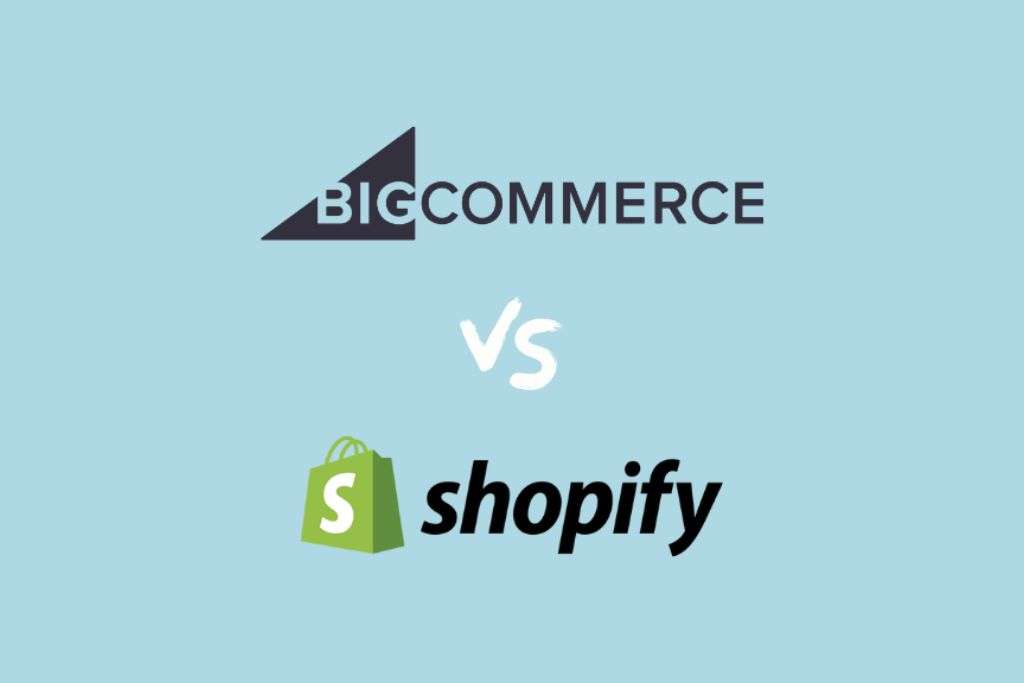Shopify vs BigCommerce: Which Is Better for Your Ecommerce Site
In today’s digital marketplace, choosing the right platform for your eCommerce business is crucial to success. With platforms like Shopify and BigCommerce leading the charge, businesses must consider various factors before deciding which one to use. If you’re a business owner looking to enhance your online store’s performance, especially if you’re seeking professional assistance for Ecommerce SEO in Kerala or Ecommerce SEO in Idukki, this article from Graceteches.com will help you understand which platform is better suited for your needs.
Let’s dive into a detailed comparison between Shopify and BigCommerce to help you make an informed decision for your eCommerce site.
1. Ease of Use
When choosing an eCommerce platform, ease of use is a significant factor, especially for business owners who might not have a technical background.
Shopify
Shopify is known for its user-friendly interface. It has a clean and intuitive design that makes it easy for beginners to navigate and manage. Whether you are adding products, customizing the website, or processing orders, Shopify ensures that these tasks are straightforward. If you are new to eCommerce, Shopify’s drag-and-drop interface will save you time and reduce the need for coding knowledge.
BigCommerce
BigCommerce also offers a user-friendly experience, but it is slightly more complex compared to Shopify. The platform has more advanced features built-in, which might be overwhelming for users who are not tech-savvy. However, for experienced users looking to take advantage of more sophisticated tools, BigCommerce offers more flexibility in customization.
Verdict:
For beginners or those who value simplicity, Shopify edges out BigCommerce in terms of ease of use. However, BigCommerce provides more built-in tools for users comfortable with a steeper learning curve.
2. Pricing and Costs
Pricing is another essential factor that influences a business’s choice of eCommerce platform. Both Shopify and BigCommerce have a variety of pricing plans, but which one offers better value?
Shopify
Shopify has three primary pricing plans:
- Basic Shopify: $39/month
- Shopify: $105/month
- Advanced Shopify: $399/month
Each plan offers various features, such as staff accounts, shipping discounts, and professional reports. Shopify also charges a transaction fee unless you use their own payment gateway, Shopify Payments.
BigCommerce
BigCommerce offers four main pricing tiers:
- Standard: $39/month
- Plus: $105/month
- Pro: $399/month
- Enterprise: Custom pricing for large-scale businesses
Unlike Shopify, BigCommerce does not charge transaction fees, even if you use third-party payment gateways, which can save you money in the long run.
Verdict:
If you plan to use a third-party payment gateway, BigCommerce’s lack of transaction fees makes it more cost-effective. However, Shopify’s pricing plans are competitive, and for many businesses, the transaction fees may not significantly impact costs.
3. Themes and Design Options
The design and layout of your eCommerce store play a vital role in customer experience and brand perception.
Shopify
Shopify has over 70 professional themes, with around 10 free options. Shopify’s themes are mobile-responsive and customizable. The platform’s theme store allows you to filter by industry, making it easy to find a design that fits your brand. Shopify’s theme editor is easy to use, allowing you to make changes without needing to write code.
BigCommerce
BigCommerce offers around 12 free themes and over 100 paid options. While BigCommerce has fewer free themes compared to Shopify, it provides a robust design framework that allows for advanced customizations. BigCommerce’s Stencil framework gives developers full control over the HTML and CSS, allowing for greater flexibility in design.
Verdict:
If you need an easy and attractive out-of-the-box solution, Shopify has more beginner-friendly design options. BigCommerce is better suited for businesses looking for highly customizable, developer-friendly themes.
4. Features and Integrations
Both Shopify and BigCommerce come with essential features to run an online store, but they differ in built-in tools and integrations.
Shopify
Shopify focuses on offering a wide range of integrations through its app store. While it has fewer built-in tools compared to BigCommerce, its app store offers over 6,000 apps, including marketing tools, SEO integrations, and social media solutions. For example, businesses focused on Ecommerce SEO in Kerala or Ecommerce SEO in Idukki can find numerous SEO apps tailored to boost local search visibility.
BigCommerce
BigCommerce stands out by offering more features as part of its core package. With BigCommerce, you get more advanced reporting, built-in product reviews, and real-time shipping quotes without having to rely heavily on third-party apps. BigCommerce also offers robust SEO features out-of-the-box, which can be a game-changer for businesses aiming for organic search dominance.
Verdict:
For businesses that prefer a platform rich in native features, BigCommerce offers more value. However, Shopify’s expansive app store ensures that you can find almost any functionality you need.
5. SEO Capabilities
For any eCommerce business, SEO plays a critical role in driving traffic and generating sales. Both Shopify and BigCommerce have SEO-friendly features, but which one performs better?
Shopify
Shopify provides basic SEO functionality, such as customizable title tags, meta descriptions, and URL structures. However, Shopify’s URL structure is fixed, meaning that certain elements (like “products” or “collections”) cannot be removed from URLs, which can affect SEO slightly. Nevertheless, Shopify’s apps, like SEO Manager, make it easy to optimize your site for search engines.
BigCommerce
BigCommerce excels in SEO features by allowing users full control over URLs, page titles, meta descriptions, and headings. Its SEO-friendly structure allows you to create a clean and optimized site right out of the box, making it a better choice for businesses highly focused on SEO. BigCommerce is particularly advantageous for businesses targeting competitive markets like Ecommerce SEO in Idukki or Ecommerce SEO in Kerala.
Verdict:
BigCommerce wins in terms of built-in SEO features, but Shopify’s app integrations can still provide excellent SEO results for your eCommerce store.
6. Payment Gateways
Offering a range of payment options is critical for improving the customer experience and boosting conversion rates.
Shopify
Shopify supports over 100 payment gateways, including PayPal, Stripe, and Shopify Payments. However, as mentioned earlier, Shopify charges transaction fees for third-party payment gateways unless you use Shopify Payments.
BigCommerce
BigCommerce supports over 65 payment gateways, including PayPal, Stripe, and Square. One of BigCommerce’s key advantages is that it does not charge any transaction fees, regardless of the payment gateway you use.
Verdict:
BigCommerce has the upper hand here due to its lack of transaction fees and extensive payment gateway support.
7. Customer Support
Having reliable customer support is essential for troubleshooting issues and ensuring your store runs smoothly.
Shopify
Shopify offers 24/7 customer support through various channels, including live chat, email, and phone. Its customer support team is known for being responsive and helpful, and Shopify also provides a robust knowledge base and community forums.
BigCommerce
BigCommerce also provides 24/7 support via live chat, phone, and email. Additionally, BigCommerce has a comprehensive help center and an active user community. Both platforms offer excellent customer service, but BigCommerce’s Enterprise customers have access to priority support.
Verdict:
Both Shopify and BigCommerce provide exceptional customer support, but BigCommerce’s priority support for Enterprise users could be a deciding factor for larger businesses.
Which Is Better for Your Ecommerce Site?
When comparing Shopify and BigCommerce, both platforms have their strengths and weaknesses. Shopify stands out for its ease of use, large app store, and beautiful themes, making it ideal for small businesses and beginners. On the other hand, BigCommerce offers more advanced built-in features, superior SEO capabilities, and no transaction fees, making it a better choice for businesses that want more flexibility and are serious about scaling.
At Grace Teches, we specialize in helping businesses in Kerala and Idukki optimize their eCommerce platforms with Ecommerce SEO. Whether you choose Shopify or BigCommerce, our team can guide you through optimizing your site for better search visibility, higher traffic, and more conversions.
Ultimately, the right choice depends on your specific needs and long-term business goals. Evaluate both platforms carefully to see which aligns better with your eCommerce vision.Contact Graceteches.com today for professional advice on eCommerce SEO in Kerala or Idukki and let us help you succeed in the competitive online marketplace.





